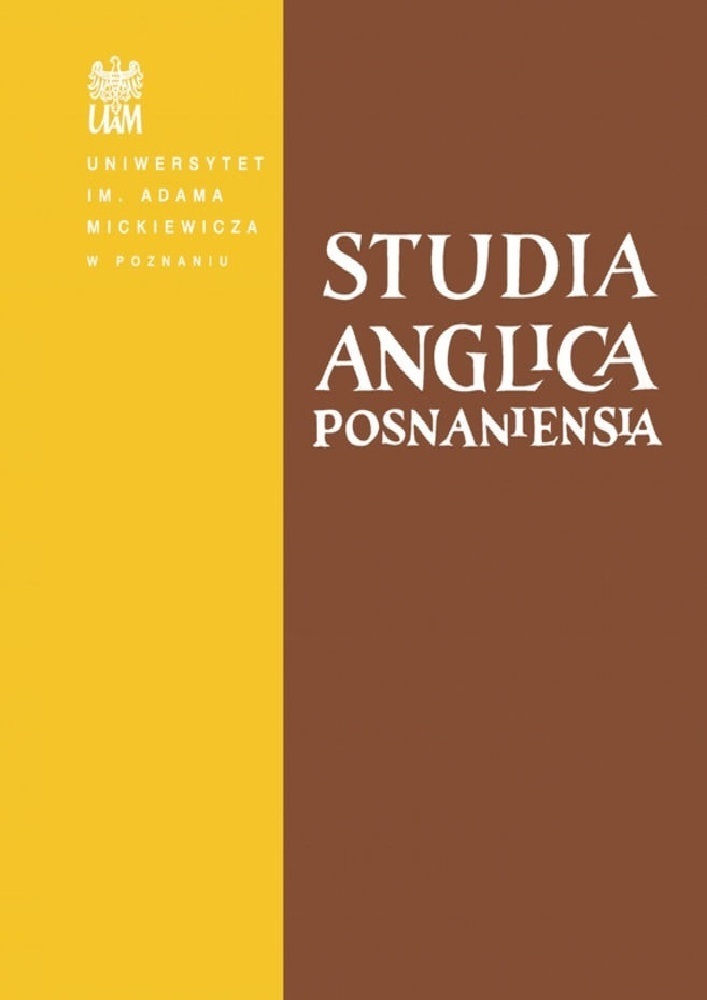Abstract
The main goal of this paper is to account for the recategorisation of the Old English to-infinitive and the consequent rise of for before the Middle English to-infinitive. We argue that the loss of D feature has two consequences. The first consequence is that V?to-D movement was lost resulting in the break-up of the (morphological and) syntactic unity of the to-infinitive. The second consequence, a consequence of the first consequence, concerns the appearance of the so-called split infinitive, i.e. the development of a preverbal adverb, negation and object position. This crucial evidence marks the drift of the infinitive towards VP behaviour. Given that D was lost in early Middle English (i.e. 1150-1200) and the split infinitive appeared in the 13th century, the paper concludes that the change from a PP to a TP status was gradual and not simultaneous with other changes.
References
Benson, Larry (ed.) 1987 The Riverside Chaucer. London: Oxford University Press.
Crawford, Samuel (ed.) 1922 The Old English version of the Heptateuch, Ælfric's treatise on the Old & New Testament & his preface to Genesis. (EETS OS 160). London: Oxford University Press.
Greet, William Cabell (ed.) 1927 R. Pecock: The reule of crysten religioun. (EETS OS 171). London - New York: Oxford University Press.
Herzfeld, George (ed.) 1899 An Old English martyrology. (EETS OS 116). London: Trübner.
Holthausen, Ferdinand (ed.) 1921 Vices and virtues: A soul's confessions of its sins. Part I. (EETS OS 89). London: Trübner.
Miller, Thomas (ed.) 1898 Bede's ecclesiastical history of the English people. Vol. I. (EETS OS 95). London: N. Trübner & Co.
Millett, Bella - Jocelyn Wogan-Browne (eds.) 1990 Medieval English prose for women: Selections from the Katherine Group and Ancrene Wisse. Oxford: Clarendon Press.
Morris, Richard (ed.) 1873 Old English homilies of the 12th century. Vols. I & II. (EETS OS 152). London: Trübner & Co.
Onions, Charles Talbutt (ed.) 1950 Sweet's Anglo-Saxon reader in prose and verse. (12th edition.) Oxford: Clarendon.
Skeat, Walter. (ed.) 1881 Ælfric's Lives of Saints. (EETS OS 76, 82, 94, 114). London: Trübner & Co.
Sullens, Idelle (ed.) 1983 Robert Mannyng of Brunne: Handlyng Synne. (Medieval and Renaissance Texts and Studies.) New York: Binghamton.
Zettersten, Arne (ed.) 1976 Ancrene Riwle (Ms. Pepys). (EETS OS 274). London - New York: Oxford University Press.
Baker, Mark 1988 Incorporation: A theory of grammatical function changing. Chicago: Chicago University Press.
Baker, Mark 1989 "The mirror principle and morphological explanation", Linguistic Inquiry 16: 373-417.
Blake, Norman (ed.) 1992 The Cambridge history of the English language. Volume II: 1066-1476. Cambridge: Cambridge University Press.
Callaway, Morgan 1913 The infinitive in Anglo-Saxon. Washington, D. C.: Carnegie Institution.
Carroll, Suzanne 1983 "Remarks on FOR-TO infinitives", Linguistic Analysis 12: 415-454.
Chomsky, Noam 1981 Lectures on Government and Binding. Dordrecht: Foris.
Chomsky, Noam 1986 Knowledge of language: Its nature, origin, and use. New York: Praeger.
Clark, Robin and Ian Roberts 1993 "A computational approach to language learnability and language change", Linguistic Inquiry 24: 299-345.
Denison, David 1993 English historical syntax. London: Longman.
Fischer, Olga 1992 "The syntax of Middle English", in: Norman Blake (ed.), The Cambridge history of the English languahe. Volume II: 1066-1476, 207-408.
Fischer, Olga 1996 "The status of to in Old English to-infinitives: A reply to Kageyama", Lingua 99: 107-133.
Fischer, Olga - Frederike van der Leek 1981 "Optional vs. radical reanalysis: Mechanisms of syntactic change", Lingua 55: 301-350.
Gaaf van der, Willem 1933 "The split infinitive in Middle English", English Studies 15: 15-20.
Henry, Alison 1992 "Infinitives in a for-to dialect", Natural Language and Linguistic Theory 10: 279-301.
Hogg, Richard (ed.) 1992 The Cambridge history of the English language. Volume I: The beginnings 1066. Cambridge: Cambridge University Press.
Kageyama, Taro 1992 "AGR in Old English to-infinitives", Lingua 88: 91-128.
Kemenade, Ans van 1987 Syntactic case and morphological case in the history of English. Dordrecht: Foris.
Kenyon, John Samuel 1909 The syntax of the infinitive in Chaucer. (Chaucer Publications, 2nd series, 44). London - Oxford: Chaucer Society.
Lightfoot, David 1979 Principles of diachronic syntax. Cambridge: Cambridge University Press.
Lightfoot, David 1991 How to set parameters: Arguments from language change. Cambridge Massachusetts: MIT Press.
Los, Bettelou 2005 The rise of to-infinitive. Oxford: Oxford University Press.
Mitchell, Bruce 1985 Old English syntax. Oxford: Clarendon.
Mustanoja, Tauno 1960 Middle English syntax. Helsinki: Société Néophilologique.
Quirk, Randolph - Jan Svartvik 1970 "Types and uses of nonfinite clauses in Chaucer", English Studies 51: 393-411.
Roberts, Ian 1992 Verbs and diachronic syntax. Dordrecht: Kluwer.
Shearin, Hubert Gibson 1903 The expression of purpose in Old English prose. (Yale Studies in English XVIII). New York: H. Holt.
Stowell, Tim 1982 "The tense of infinitives", Linguistic Inquiry 13: 561-570.
Traugott, Elizabeth 1992 "The syntax of Old English", in: Richard Hogg (ed.), The Cambridge history of the English language, Volume I: The beginnings to 1066, 168-289.
Visser, Frans Theodor 1963-1973 An historical syntax of the English language. Leiden: Brill.
